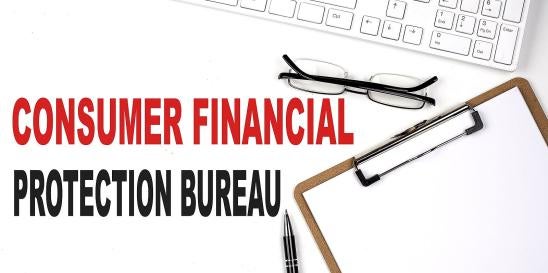Go-To Guide: |
|
On Jan. 24, 2024, the CFPB released a proposed rule that would, if finalized in its present form, prohibit financial institutions from charging NSF fees when consumers initiate transactions that are instantaneously or near-instantaneously declined. Under the proposed “Fees for Instantaneously Declined Transactions rule (the “NSF Fee Rule”), charging such fees would constitute an “abusive” act or practice under the CFPA. The proposed NSF Fee Rule is the latest development in the CFPB’s ongoing effort to scrutinize and eliminate so-called “junk fees.”
In a press release announcing the proposed rule, CFPB Director Rohit Chopra highlighted the CFPB’s view that so-called “junk fees” like the NSF fees at issue have no place in consumer financial products. “Over the years, large banks and their consultants have concocted new junk fees for fake services that cost almost nothing to deliver,” Chopra said. “Banks should be competing to provide better products at lower costs, not innovating to impose extra fees for no value. The CFPB will continue to rid the market of junk fees today and prevent new junk fees from emerging in the future.”
Background
In the CFPA, Congress provided the CFPB with the authority to craft rules identifying unfair, deceptive, or abusive acts or practices.1 But Congress prohibited the CFPB from identifying an act or practice as “abusive” unless the act or practice either (1) materially interferes with consumers’ ability “to understand a term or condition,” or (2) “takes unreasonable advantage” of consumers’ (a) lack of understanding of the material risks, costs, or conditions of a product or service, (b) inability to protect their own interests, or (c) reasonably reliance on a covered person to act in their interest.2
The CFPB, however, has struggled to identify “abusive” acts and practices, and struggled to define what criteria should be used to determine whether an act or practice is abusive. For instance, the CFPB’s 2017 rule on Payday, Vehicle Title, and Certain High-Cost Installment Loans attempted to give content to the abusiveness standard, but that effort was rejected when the 2017 Payday Lending Rule was rescinded (in part).
With the release of its proposed NSF Fee Rule, the CFPB is making another attempt to give content to the abusiveness standard. The NSF Fee Rule asserts that an act or practice is abusive if a covered person “takes unreasonable advantage” of a consumer’s “lack of understanding of the material risks, costs, or conditions of a product or service,” even if the consumer’s lack of understanding is not reasonable.
Applying that standard, the proposed NSF Fee Rule asserts that charging an NSF fee when a consumer initiates a transaction that is instantaneously or near-instantaneously declined is an abusive act or practice. According to the proposed rule, charging that sort of NSF fee takes unreasonable advantage of the consumer’s lack of understanding of the material risks, costs, or conditions associated with the financial product because:
- The NSF fee is not being charged for any service, meaning the financial institution charges the fee while providing nothing to the consumer in return;
- The financial institution charging the NSF fee is reaping a “windfall” at the expense of the consumer given that the cost of declining the transaction is negligible;
- The financial institution charging the NSF fee benefits from negative consumer outcomes flowing from a consumer’s lack of understanding of the material risks, costs, or conditions associated with the financial product; and
-
Such NSF fees disproportionately affect economically vulnerable consumers without assisting them in alleviating the hardships associated with their economic circumstances.
The Proposed Rule
The CFPB’s proposed rule to ban charging NSF fees when a consumer initiates a transaction that is instantaneously or near-instantaneously declined on the basis that charging such fees is an abusive act is relatively straightforward.
- Scope – Covered Financial Institutions. The proposed rule would apply to “covered financial institutions,” which would include any “financial institution” as that term is defined in 12 C.F.R. 1005.2(i) (Reg. E).
- Scope – Covered Transaction. The proposed rule would impose prohibitions with respect to any “covered transaction,” which would include “an attempt by a consumer to withdraw, debit, pay, or transfer funds from their account that is declined instantaneously or near-instantaneously by a covered financial institution due to insufficient funds.” As used in the proposed rule, “account” carries the same meaning as defined in 12 C.F.R. 1005.2(b) (Reg. E), which includes consumer checking accounts and certain prepaid accounts. Because the proposed rule’s emphasis on transactions that are declined instantaneously or near-instantaneously, “covered transactions” would not include (1) transactions “declined or rejected due to insufficient funds hours or days after the consumer’s attempt”; (2) checks and ACH transactions (unless and until such payment mechanisms evolve such that they can be declined instantaneously or near-instantaneously); or (3) transactions that are initially authorized but are later rejected or fail to settle due to insufficient funds.
- Scope – NSF Fee. The proposed rule would impose prohibitions with respect to “NSF fees.” An “NSF fee” is a charge that is assessed by a covered financial institution for declining an attempt by a consumer to withdraw, debit, pay, or transfer funds from their account due to the consumer not having enough money in their account to cover the withdrawal, debit, payment, or transfer transaction. Notably, the proposed rule expressly provides that the label used by a covered financial institution to describe a fee is not determinative of whether the fee is an “NSF fee” under the proposed rule.
- Identification as Abusive Practice. The proposed rule plainly states that it “is an abusive practice for a covered financial institution to charge a nonsufficient funds fee in connection with a covered transaction.”
- Prohibition. The proposed rule provides that a “covered financial institution must not assess a nonsufficient funds fee in connection with any covered transaction.”
Takeaways
The CFPB’s proposed rule to ban charging NSF fees on instantaneously or near-instantaneously declined transactions, if finalized in its present form, represents only one aspect of a broader trend by both state and federal actors to cut down “junk fees”—a term that seems to become broader each time it is used. For example, in the past year, the CFPB, the Federal Trade Commission, and the state of California have all addressed what each considers “junk fees.”
The proposed rule may not in itself cause shockwaves throughout the consumer financial services space, as the CFPB acknowledges in the proposed rule that it “understands that it is currently uncommon for financial institutions to charge NSF fees on covered transactions.” Regardless, covered financial institutions should closely examine the proposed rule and consider whether it, alongside other regulatory efforts to limit fees charged to consumers, would impact current and planned product offerings.
Stakeholders should submit comments on any aspect of the proposed rule by March 25, 2024.





 i
i


